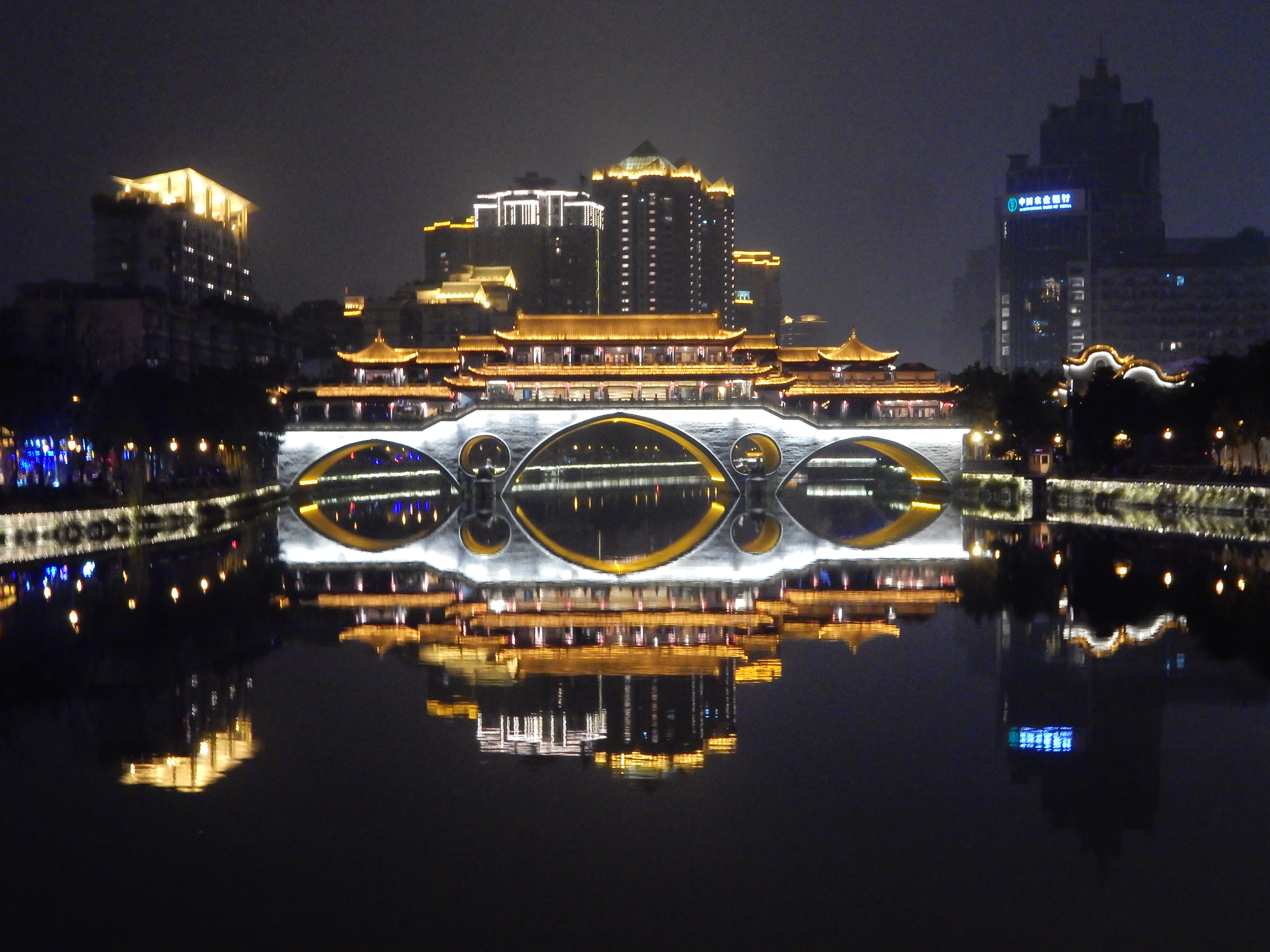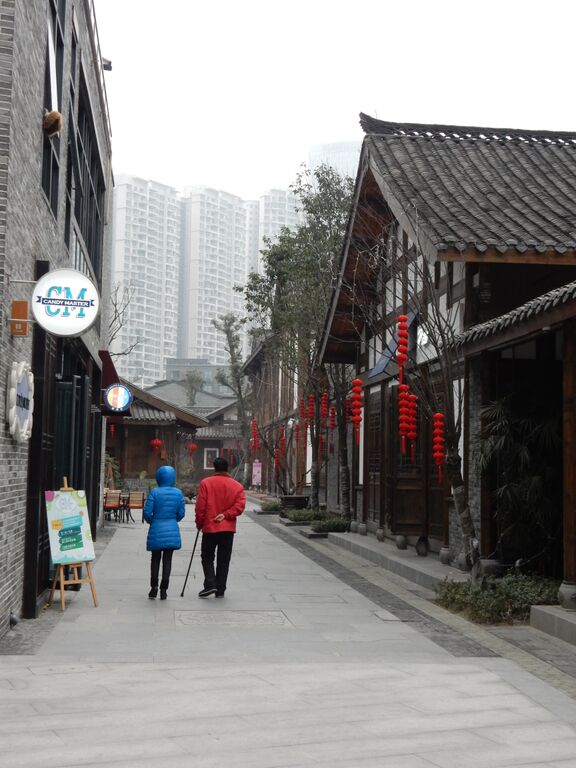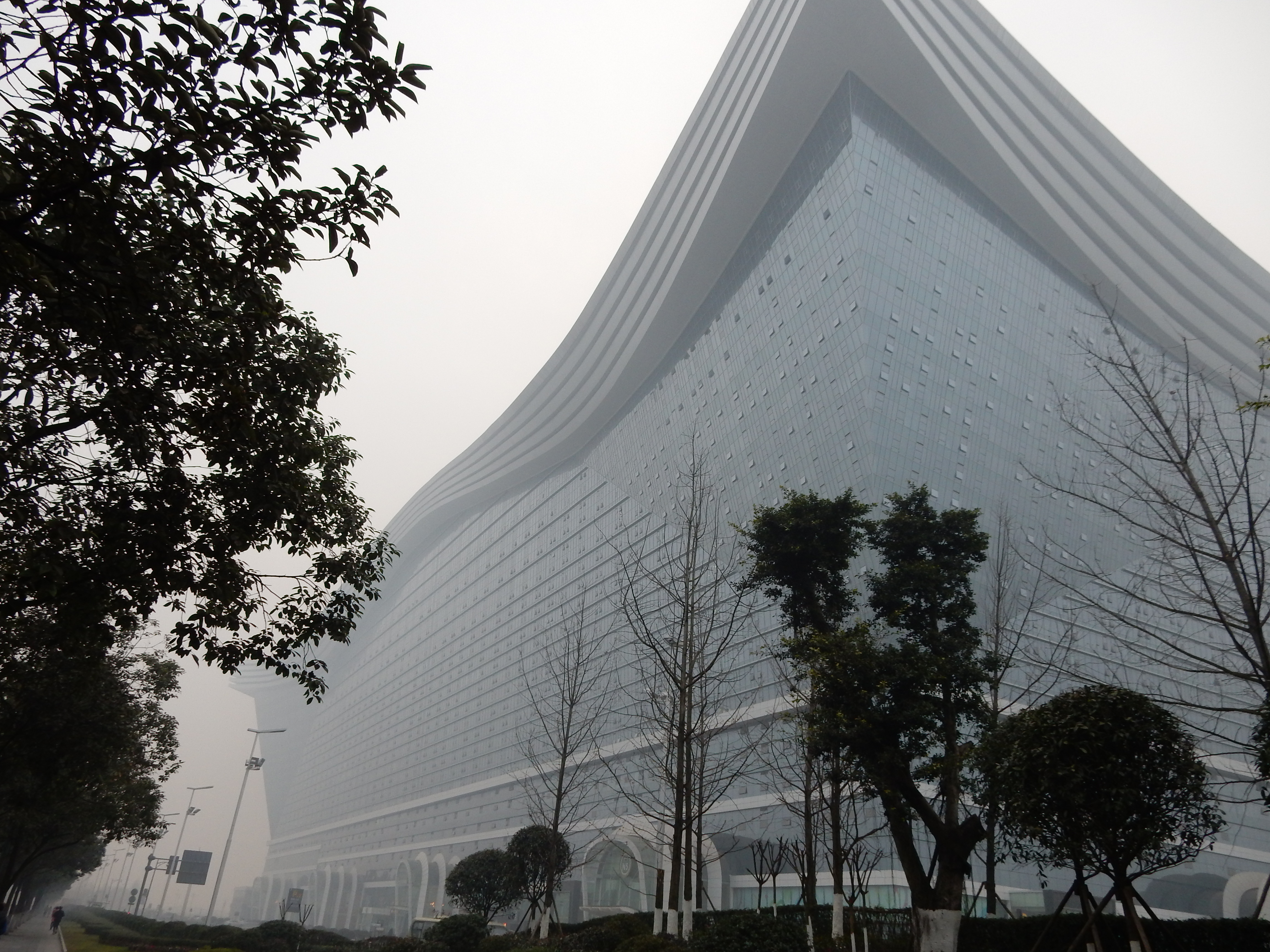Chengdu: Home of Pandas and Land of Abundance
My name is Hattie and I am a Chengdu veteran and enthusiast, having lived there from 2013-2014. When I was first given the opportunity to go, I’m slightly ashamed to say that I had never heard of it. I was however quickly convinced by a Google search where I learnt it to be the home of the giant panda. UNESCO also awarded Chengdu the title of a City of Gastronomy in 2010, boasting innumerable restaurants selling untold delicacies. Absolutely won over, I packed my bags and made haste to the city.
The glorious thing about Chengdu is not, sadly, the weather. It rains almost as frequently as it does at home in England, although you can take small comfort in the fact that the rain tends to be warmer than in the British Isles, and the weather is generally not as cold. In fact, during the summer months it is extremely hot.

However, the city itself is a triumph of culture and food. Any interests are catered for in Chengdu. It is a large city of around 14 million people and yet there are many quiet parks for locals to sit and relax, spending all day with their families playing Mahjong, singing KTV or dancing in the parks. If you are looking for a husband or wife, they handily have marriage fairs in some of the bigger parks, where parents will peg pictures and descriptions of their children on enormous washing lines strung upon the trees, and you can go browse at your leisure to find the love of your life.

Chengdu has ancient and interesting towns such as JinLi and the Wide and Narrow Alleys. These places are very beautiful, with traditional Chinese architecture displaying ancient crafts and selling unique and exciting (although perhaps not very tempting) food, such as intestine and gizzard soups, and BBQ’d insects. I frequented these places often and they are certainly well worth a visit; it feels as though you have travelled back in time when you step through the gates to these communities.
Chengdu’s temples and monasteries also do not disappoint. Wenshu Monastery is absolutely beautiful and gives a real sense of peace which is rare in such a bustling city. There is also the Wuhou Shrine and other smaller monasteries and temples. Of course, nobody can claim to live in Chengdu without going to visit the majestic giant panda. There are shrines and references to them everywhere in the city and a huge research base with hundreds of pandas, old and young.
In stark contrast to this culture is Chengdu’s nightlife and social life. Jiuyanqiao is a whole street dedicated to bars, which is very popular with locals. There is also an upmarket commercial nightlife area called Lan Kwai Fong, consisting of the most beautiful clubs and bars. They seem extremely exclusive but by making friends with the club owners, foreigners tend never to pay for drinks. These places boast live bands, top DJs and singers, and you always get a platter of fruit! The nightlife elsewhere in Chengdu is good; there are many bars and smaller venues which are popular with foreigners and a good place to go and meet expats; some of my closest friends were met on nights out. It is very easy to make friends in Chengdu; everyone is always excited to meet new people, and very welcoming.
Of course, the number one pastime in China is KTV, and for good reason. It is brilliant. Before I came to China I understood karaoke to be an activity almost exclusively for tipsy aunts and uncles on New Year’s Eve, so naturally was reluctant to attend. However I immediately realised the error of my ways when I was finally forced to attend. KTV places in China are extremely plush, private rooms where you choose songs with friends and spend the evening having beer, snacks and singing your heart out; no matter if you are tone deaf. It is absolutely not to be missed for anyone living in China!

Chengdu’s crowning glory (apart from the pandas) is its fantastic cuisine. It could not be further removed from the Chinese takeaways that I had at home, but eating together is extremely important in Chinese culture. Sichuan food is famously spicy, with over 15 chillies being used and grown in the region. However as long as you mention that you don’t want the food too spicy (never, ever ask for extra spice), the flavours are delicious. There is also an element of excitement when eating Sichuan cuisine because you can never be sure what part of an animal, or even what animal, you may be eating. I ate chicken’s feet, duck’s neck and brain, chicken and cow’s stomach, throat, intestine and probably many more things that were concealed from me. I found the varied cuisine delicious, and delightfully I have a mine of anecdotes and stories to wow and disgust friends from home, just as we’ve started dinner.
Overall, my advice for anyone considering Chengdu would be to go. I had a wonderful, exciting, unexpected adventure and loved it. I have made friends for life there, and have witnessed the transformation of a city into a super city. I have very fond memories of Chengdu and look forward to returning someday.
If you’d like to hear more from Harriet please visit her teacher experience page.